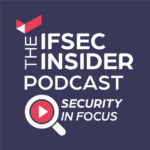The rising frequency of nation-state and ransomware attacks are seen as a growing risk to the West’s national critical infrastructure, according to new research.
The latest research from Trend Micro Incorporated, a global provider of cybersecurity products and services, has found that 20% of over 2,000 global organisations surveyed rank cyber espionage as the most serious threat to their business, with a quarter struggling to implement measures to thwart such attacks.
According to Trend Micro, 20% of US organisations have suffered a cyber espionage-related attack in the last year.
The study surveyed a total of 2,402 enterprise IT decision-makers in Europe and the US. Cyber espionage tops the list of biggest security concerns for 2017.
Businesses in Italy, France, Germany and the Netherlands feared cyber espionage the most, which is notable in light of elections taking place across Europe.
Raimund Genes, chief technology officer for Trend Micro, said: “The data shows fears over foreign government interference in democratic processes are now very real, as we saw with accusations over Russian involvement in the US presidential elections.”
Unpredictability
Eight out of 10 countries cited the increasing unpredictability of cyber criminals and a quarter of firms surveyed are struggling to keep up with the increasing sophistication of cybercriminal activity.
Malicious cyberattacks have been responsible for a spate of incidents in Ukraine, where critical infrastructure, ranging from portions of the electric grid to the national railway network have been taken over, creating havoc, including blackouts.
“As more of our critical data is being moved online, nation states are now targeting businesses to obtain this data and businesses are struggling to keep up, which could also be placing critical infrastructure at risk,” said Genes.
According to the research, almost two-thirds of businesses experienced a ‘known’ major cyber-attack in the past 12 months. Ransomware, where computer systems are blocked using malicious software until a sum of money is paid, was by far the most common type of threat.
From 2017 onwards, ransomware software is expected to proliferate and diversify to devices such as mobile phones and Internet of Things (IoT) devices and industrial IoT devices.
“There’s no silver bullet for cyber security; these threats are constantly evolving,” stressed Genes. “The increasingly unpredictable tactics used by well-funded cybercriminals and the fast evolving threat landscape highlights the fundamental need for businesses to have a layered defence to greatly reduce the risk.”
Listen to the IFSEC Insider podcast!
Each month, the IFSEC Insider (formerly IFSEC Global) Security in Focus podcast brings you conversations with leading figures in the physical security industry. Covering everything from risk management principles and building a security culture, to the key trends ahead in tech and initiatives on diversity and inclusivity, the podcast keeps security professionals up to date with the latest hot topics in the sector.
Available online, and on Spotify, Apple Podcasts and Google Podcasts, tune in for an easy way to remain up to date on the issues affecting your role.

